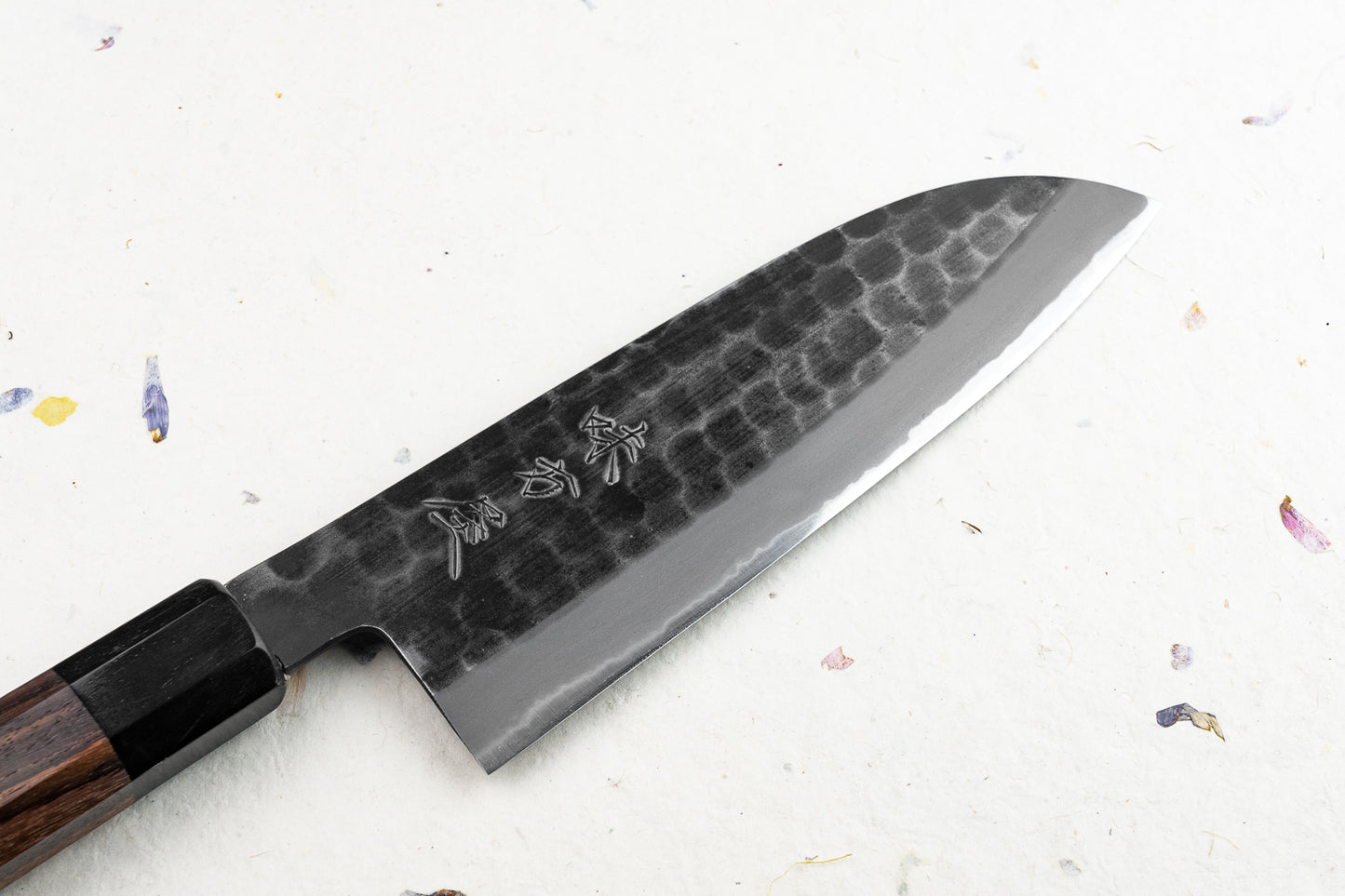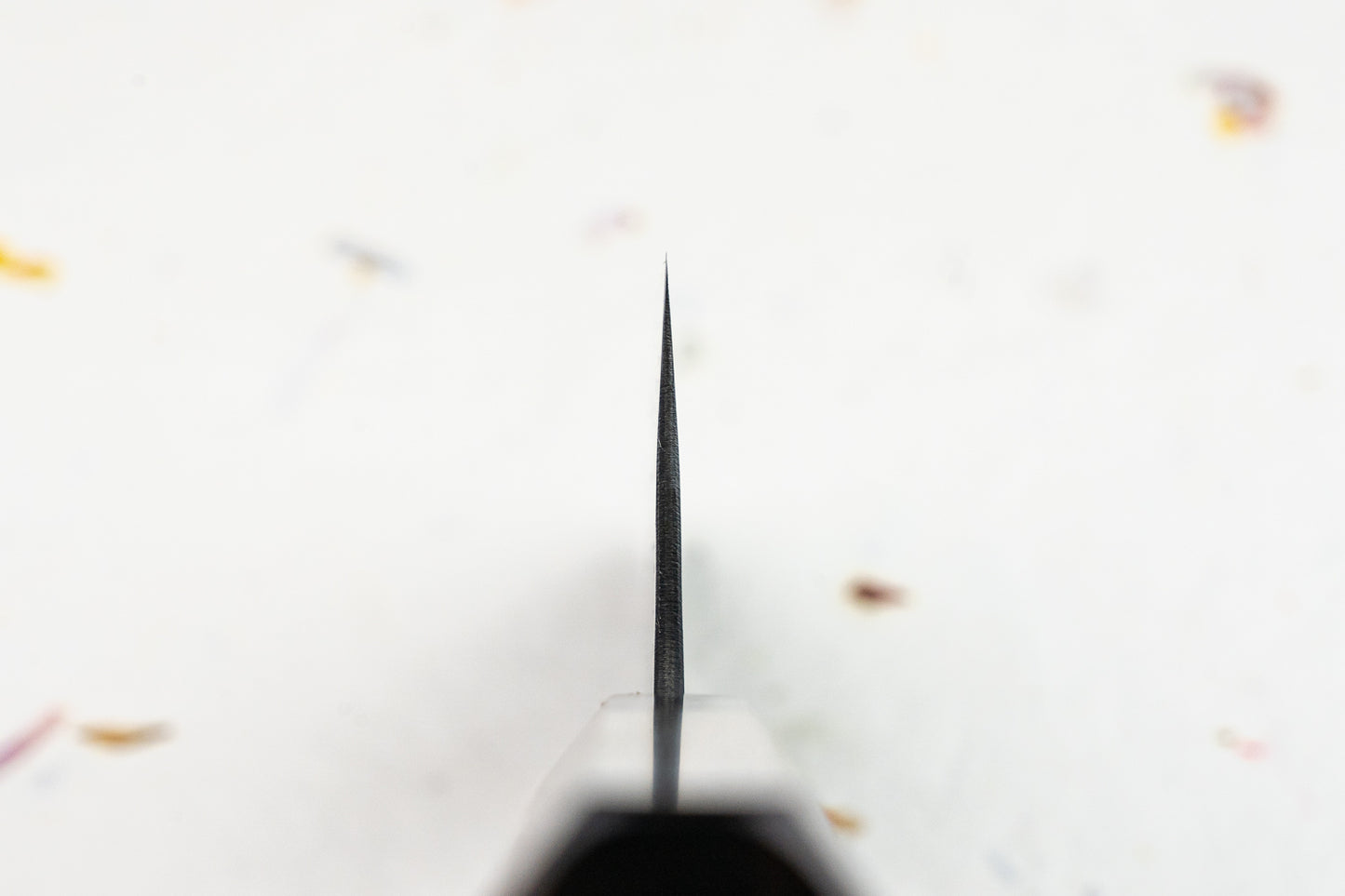Mutsumi Hinoura "Ajikataya" Shirogami Tsuchime Santoku 165mm
Mutsumi Hinoura "Ajikataya" Shirogami Tsuchime Santoku 165mm
Couldn't load pickup availability
About Mutsumi Hinoura:
Mutsumi Hinoura is the son of renowned blacksmith Tsukasa Hinoura. Not one to be overshadowed by his father’s legacy, this relatively young blacksmith born in 1981 is already a promising prospect to become one of Japan’s best knife makers.
Mutsumi-san's knives are deceptively simple at first but reveal his talent upon closer inspection. While the blade is quite hefty with a thick spine and body, he tapers it down to the edge beautifully. This construction allows it to cut very smoothly without becoming too delicate. He follows in his father’s footsteps by working with traditional high-carbon steel known as shirogami; while this steel can rust easily, it sharpens beautifully and takes an edge that would put Wolverine’s adamantium claws to shame.
The Japanese-style octagonal wood ‘wa-handle’ is an elegant highlight that elevates this knife to something truly special. It focuses the mass of the knife into the blade, allowing it to do most of the work for you, with little effort required to wield the knife effectively.
About the Shape: This is also a multi purpose knife, but with a slight vegetable bias. Santoku means 'Three Virtues' or 'To solve Three Problems'. The virtues or problems are slicing, dicing and mincing. Santoku is usually found in 160mm - 190mm lengths. These are more and more popular in Western kitchens due to the unique shape and smaller easy to handle size.
| Shape | |
|---|---|
| Blade Length | |
| Blade Height | |
| Blade Thickness Above Heel | |
| Weight | |
| Steel Type | |
| Rockwell Hardness | 62–63 |
| Blacksmith | |
| Edge/Bevel | |
| Handle | Rosewood Octagon Water Buffalo Horn Collar |
| Made in |
A note about measurements: Handmade Japanese knives can vary in their dimensions, so these measurements are only an example.
Knife Care
Knife Care
Shipping and Returns
Shipping and Returns
We aim to ship your order within 1 business day at Knifewear, if there is a hold up, we'll aim to let you know and give you a timeline.
We offer $3 shipping on orders over $100* anywhere in Canada and $200* to customers in the USA. We ship worldwide, and offer up to the minute rates from our shipping partner DHL.
*Konro Grills and some other larger items are excluded from the free shipping offer.
How do I make a return on an online order?
No worries, we've got you sorted. Head over to https://knifewear.com/returns and follow the prompts.
Can I pick up my order Curbside / At the store?
Absolutely, as long as all the items you are looking for are in stock at the location you want to pickup from, you'll be able to select that at the checkout. If one or more items aren't at your preferred location we are happy to ship it to you.






